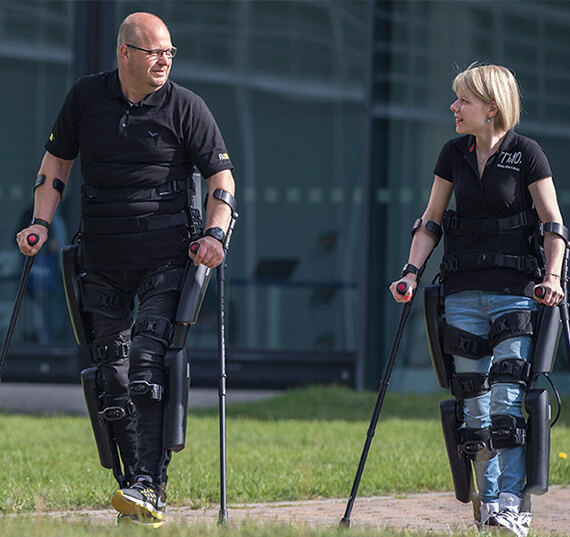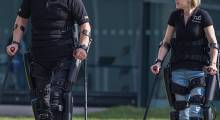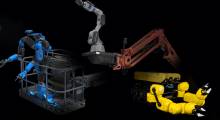ReWalk Robotics Ltd. last week welcomed BARMER’s decision to accept the prior ruling from the state court that exoskeletons are considered as direct disability compensation and withdraw the pending case at the federal level shortly before the hearing.
This outcome means that an eligible insured person with spinal cord injury (SCI) has a legal basis for the supply of an exoskeleton as an orthopedic aid for direct disability compensation in Germany, ReWalk’s largest market for exoskeletons.
Marlborough, Mass-based ReWalk Robotics develops, manufactures, and markets wearable robotic exoskeletons for individuals with lower limb disabilities because of an SCI or stroke. ReWalk’s mission is to fundamentally change the quality of life for individuals with lower limb disability through the creation and development of market leading robotic technologies. Founded in 2001, ReWalk has headquarters in the U.S., Israel and Germany.
BARMER is a health insurance provider out of Barmen, Germany.
What was in the precedent ruling
In the precedent ruling, the court determined that an exoskeleton device directly compensates for the loss of abilities for the spinal cord injured individual, such as the ability to stand, walk, and ascend or descend stairs and curbs. The definition of direct disability compensation applies to medical aids which replace failed and impaired bodily functions to the extent that the person using them is on par with people without disabilities.
In this context, the provision of an advanced technical aid, such as an exoskeleton, can be provided to the medically eligible insured individual, regardless of any other medical aids that have previously been supplied.
ReWalk executives respond to legal win
“The successful conclusion of this legal dispute identifying the exoskeleton as direct disability compensation changes the landscape for the eligible paralyzed community,” stated Larry Jasinski, CEO of ReWalk. “The German healthcare system has led the way in its adoption of exoskeletons for spinal cord injured individuals. We expect that this acceptance of the prior ruling will enable medically eligible members of the SCI community to access exoskeleton technology in a more efficient manner.”
“We anticipate that today’s events will have immense significance for paraplegics in Germany. The precedent set by the state court is enforceable and legally binding and will help ensure that eligible individuals with spinal cord injuries have a legal basis to obtain this technology,” said Professor Thomas Ratajczak, legal representative for the plaintiff in this case.
The plaintiff, Lars Vinken, stated, “After seven years of waiting to walk in an exoskeleton, I am excited that BARMER will now provide me with a ReWalk. It is of great value to know that other paraplegics will now have easier access to this technology. To be supplied with an exoskeleton and be able to stand up and walk again at any time opens new horizons for me.”
Article topics
Email Sign Up

















